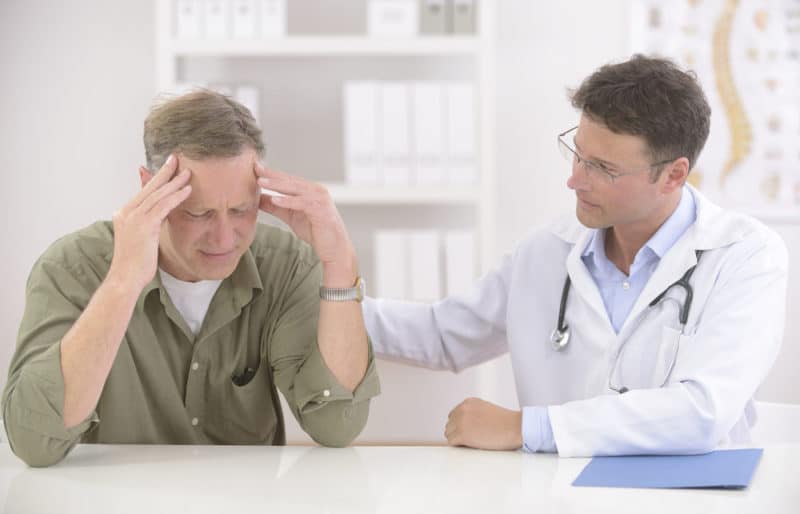People working a program of addiction recovery have a vested interest in avoiding mind-altering substances, at all costs. It doesn’t matter one’s drug of choice, alcohol or heroin. If you have been touched by the disease of addiction, you should be leery of any substance that becomes habit-forming. It is quite common for people in Alcoholics Anonymous to think that they can still use certain drugs without consequence. Those working programs via Narcotics Anonymous often believe that they can still drink alcohol. Both lines of thinking, however, are a slippery slope to trouble. And those in recovery who think that they can use certain substances recreationally often end up back where they started. That is, using their drug of choice.
Unfortunately, there are scenarios when avoiding certain drugs are next to impossible. Especially prescription opioid painkillers. People in recovery get injured or require surgery just like the general population. Even if one is in recovery they cannot be expected to undergo certain procedures with only local anesthetics. So, what is to be done? Or rather, how does a person in recovery who will be taking opioids (even for a short time) avoid the risk of relapse?
It is a delicate situation to be sure, but perhaps the most important thing to do is to be honest with one’s physician. If you are in need of a serious medical procedure, it is absolutely vital that your doctor be made fully aware of your history. If they are in the dark, doctors will likely go about treating your pain the same way they would the general public.
We Are Here For You
Let Us Help You Heal
Our [acf field=”detox_cta_field-drugname”] detoxification experience is second to none.
Learn how we can help by speaking with one of our Treatment Advisors today.
Mitigating Opioid Dependence
Look no further than the news to see just how grave the opioid addiction epidemic is in America. We have average citizens with no history of addiction being prescribed opioids for pain. Often in high doses and for long periods of time. The end result is in many cases dependence and addiction. A significant number of such people have lost their lives to an opioid overdose. In fact, on any given day in America, 100+ people lose their life to an opioid overdose. The majority of such cases involve prescription opioids.
Mitigating the risk of dependence, addiction and overdose has been extremely difficult to accomplish. This is because there isn’t currently an opioid alternative being widely used to treat both acute and chronic pain. So, if opioids are not going anywhere any time soon, it is vital that they are used sparingly. Which means that methods for getting patients off opioids as quickly as possible is of the utmost importance. It is not only vital for people in recovery, it’s vital for the United States.
Our Treatment Services Include
A study shows that getting patients away from prescription opioids shortly after surgery might be achieved via psychological support and mindfulness meditation. “Acceptance and Commitment Therapy to Manage Pain and Opioid Use after Major Surgery: Preliminary Outcomes from the Toronto General Hospital Transitional Pain Service,” was published in the Canadian Journal of Pain. The research observed 343 patients over a 2-year period. The greatest reductions in opioid use were seen in patients who received psychological services. Such patients also exhibited better moods.
“If we lower how many opioids patients are taking, but leave them disabled and not able to live their lives, that is not helpful,” said Dr. Aliza Weinrib, co-author of the study and a clinical psychologist at TGH. “Patients can learn to respond to their pain in a different way, making it less overwhelming. They don’t have to be so tied to their medications.”
Ready To Begin Your Treatment?
Let Us Help Your Family Heal
Our family therapy program is second to none.
Learn how we can help your family by calling a Treatment Advisor now.
Opioids In Recovery
If you have plans to undergo a serious medical procedure, one that will involve the use of opioids, then please ensure that you and your doctor have a plan for tapering off the medication as soon as possible. What’s more, make sure that your sponsor and recovery peers are aware that you will be taking the drugs for a time. They can help you ensure that the drugs are taken as prescribed. That extra level of accountability can go a long way when keeping your addiction from convincing you that you can take an extra pill today.
Please contact The Immersion Program if you are struggling with prescription opioids. We can help you break the cycle of addiction and help you find ways to address pain without the use of opioids.
Reviewed for accuracy by :
Susan Shirley
LMHC
Serving as the Inpatient Clinical Director at Immersion Recovery Center, Susan will work directly with staff members, clients, and family members to ensure the clinical program remains as effective and individualized as possible. Susan is no stranger to the fields of behavioral health and addiction. She has over 25 years of experience, working in an inpatient setting, an outpatient setting, acute stabilization and nearly all other settings in the realm of addiction recovery.
Begin Healing Now!
Have A Call With One Of Our Treatment Advisors
Don’t Suffer Any Longer



















